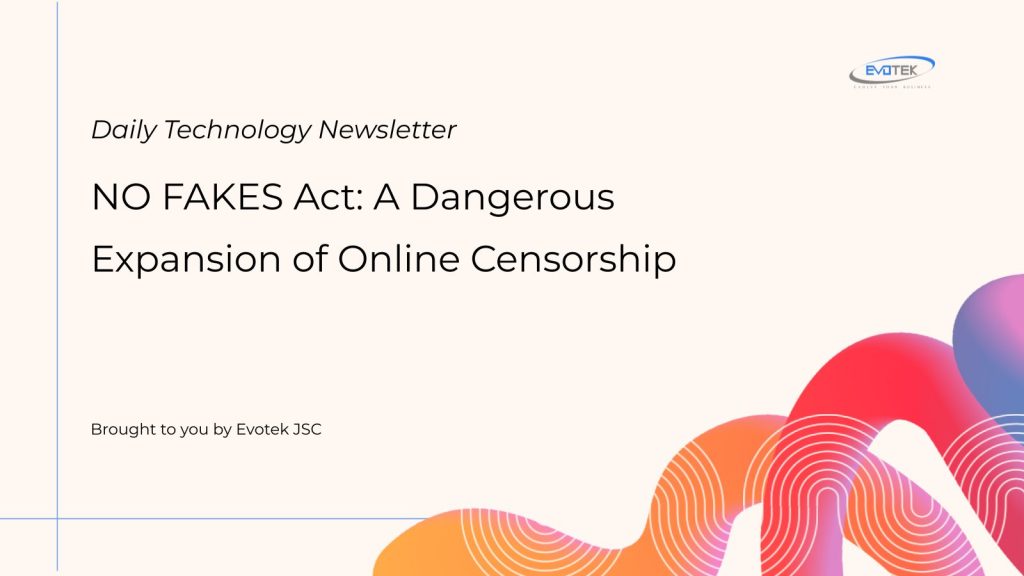Legislation initially intended to combat misinformation generated by AI has morphed into a severe threat to online freedom and innovation. The proposed changes to the Nurture Originals, Foster Art, and Keep Entertainment Safe (NO FAKES) Act could fundamentally alter the internet as we know it.
From Misinformation to Censorship: Understanding the NO FAKES Act
The NO FAKES Act, designed to address concerns about AI-generated content, introduces a sweeping new intellectual property right. Instead of providing targeted solutions against harmful misrepresentations, balanced with protections for legitimate speech like parody, the act effectively creates a federal image-licensing system. The updated bill goes further, mandating a broad censorship infrastructure that impacts not only images but also the tools used to create them.
Key Concerns with the Revised NO FAKES Act:
- Mandatory Takedown Systems: Internet platforms would be required to remove content upon notice and implement filters to prevent re-uploads, similar to flawed copyright filters.
- Tool Targeting: The act targets tools used to create unauthorized images, potentially stifling innovation by giving rights-holders veto power over new technologies.
- Weak Safeguards: The notice and takedown system lacks sufficient safeguards, leading to potential over-censorship and abuse. Carve-outs for parody and satire offer little comfort to those unable to afford legal challenges.
- Threats to Anonymity: The bill allows easy access to user-identifying information via court clerk subpoenas, chilling free speech and potentially exposing users to harm.
- Innovation Stifled: By increasing compliance burdens, the act makes it harder for new services to compete with Big Tech and discourages the development of innovative tools.
The Broader Implications
The NO FAKES Act risks consolidating control over digital images, undermining free expression, and hindering technological advancements. Recent legislation, such as the Take It Down Act, already pressures platforms to monitor online speech. Rushing into further internet regulation without assessing the impact of existing laws is reckless.
This bill is not about protecting individuals from harmful digital replicas; it’s about controlling the commercial exploitation of digital images, with significant collateral damage to online freedoms.
Take Action: Tell Congress to Say No to NO FAKES
Related Issues: Creativity & Innovation, Fair Use
Stay Informed
Get the latest updates on news, actions, and events affecting digital rights:
Email Address
Postal Code (optional)
Anti-spam question: Enter the three-letter abbreviation for Electronic Frontier Foundation:
Thanks, you’re awesome! Please check your email for a confirmation link.
Oops something is broken right now, please try again later.
Related Articles
Copyright Cases Should Not Threaten Chatbot Users’ Privacy
June 23, 2025 – Tori Noble
Despite Changes, A.B. 412 Still Harms Small Developers
June 10, 2025 – Joe Mullin
Keeping the Web Up Under the Weight of AI Crawlers
June 5, 2025 – Starchy Grant
The PERA and PREVAIL Acts Would Make Bad Patents Easier to Get—and Harder to Fight
June 3, 2025 – Joe Mullin

 日本語
日本語 한국어
한국어 Tiếng Việt
Tiếng Việt 简体中文
简体中文